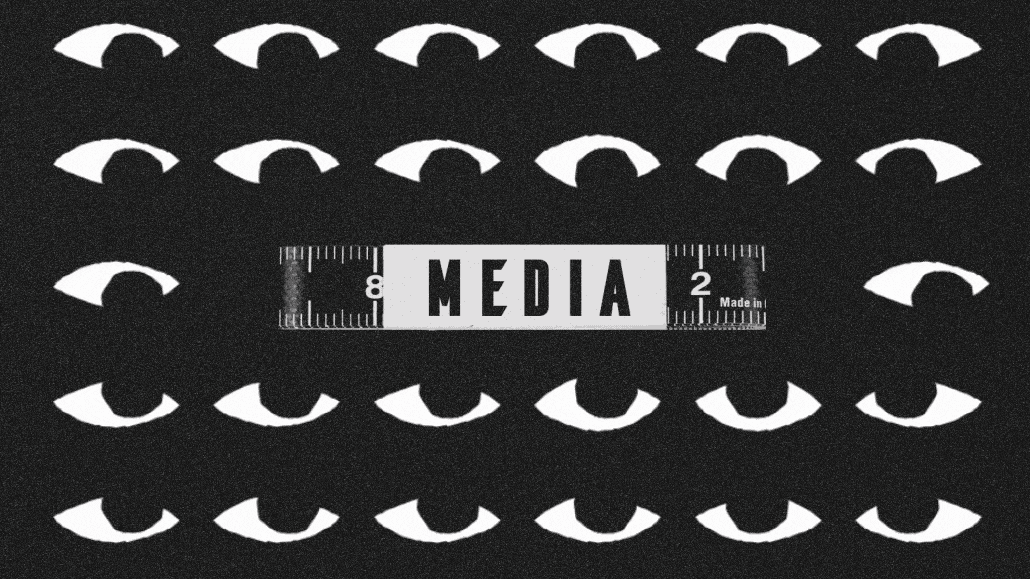Secure your place at the Digiday Media Buying Summit in Nashville, March 2-4
VideoAmp touts its commingled ID solution as a step forward in a cookie-less world

Much like a band that just stopped playing but most of the audience already left a long time ago, Google’s looming banishment of ID cookies forever will come when most of the marketing ecosystem has already moved on. After all, necessity forced them to find alternatives to identifying (and tracking) the most likely consumers to buy their products or services.
One of the newer alternatives working the video space comes from measurement firm VideoAmp, which has introduced the ability to commingle various ID sets into its clean room technology, Digiday has learned. The tech is already available to current users of VideoAmp’s measurement software and aims to offer a clearer picture of consumer identity while maintaining privacy safeguards, by virtue of its presence in clean room tech.
That tech aims to safely incorporate a variety of identifiers, including hashed emails, signed-in users, IP addresses and device IDs — but ensuring any given consumer’s personal identifiers are privacy-protected from VideoAmp, its partners or clients.
VideoAmp’s evp of product Josh Hudgins said the move represents a step he feels few other measurement providers have been able to master. “What we wanted to solve was to create a way to create greater fidelity around that audience throughout the life of a campaign,” said Hudgins. “And one of the things that we built was this deterministic commingled identity graph so that we could have that determinism, that accuracy and a single source of truth for the campaign.”
Even though VideoAmp isn’t the first company to enable commingling of different ID data sets, Hudgins said it’s the first time it’s been applied by a measurement provider in the advanced currency space. “There have been other companies that have built commingled identity assets before but not for this specific purpose,” he said.
The end result? “It creates better content measurement, better ad measurement and better outcome measurement, so you get a far more precise view of a person who watched a certain thing,” added Hudgins. “Was their shopping behavior influenced by it? These are the things that advertisers are increasingly wanting to measure more accurately.”
Since it’s already available through VideoAmp’s existing clean-room tech, it’s safe to presume the companies using that are making use of the commingled ID ability too, such as Disney, Warner Bros. Discovery, NBCU and others. VideoAmp declined to comment on which of those companies are using it.
However, some agency groups that have worked with VideoAmp are happy to have kicked the proverbial tires.
“The capability to directly match our census-level Omni ID with VideoAmp’s new commingled identity solution will deliver better scale and more accurate plans for our clients by improving match rates with our partners on advanced audiences,” said Megan Pagliuca, Omnicom Media Group North America’s chief activation officer. “Our clients will now be able to dive deeper beyond demographics with some of the most premium content producers in the world, enabling them to deliver more relevant ads to the right consumers.”
“I’m not surprised that this is the next evolution of where they’re going, because they’re one of the few companies that have access to so many first party IDs,” added Boris Litvinov, president of Left Off Madison, an independent media agency that currently doesn’t use VideoAmp data but is aware of the firm’s offerings.
Litvinov noted that the only downside would be any issues with modeling — but he guesses that VideoAmp is on top of it. “The risk is the same risk as any other form of modeling. But When you ask this specific question, you really have to ask it through the lens of a data scientist. How was this data procured? How did you clean the data and how did you match the data? You can believe that a company of their stature had some of the brightest data scientists on staff to help match those IDs.”
More in Media Buying

Future of TV Briefing: CTV identity matches are usually wrong
This week’s Future of TV Briefing looks at a Truthset study showing the error rate for matches between IP and deterministic IDs like email addresses can exceed 84%.

Canadian indie Salt XC expands its U.S. presence with purchase of Craft & Commerce
Less than a year after buying Nectar First, an AI-driven specialist, Salt XC has expanded its full-service media offerings with the purchase of Craft and Commerce.

Ad Tech Briefing: Publishers are turning to AI-powered mathmen, but can it trump political machinations?
New ad verification and measurement techniques will have to turnover the ‘i just don’t want to get fired’ mindset.








